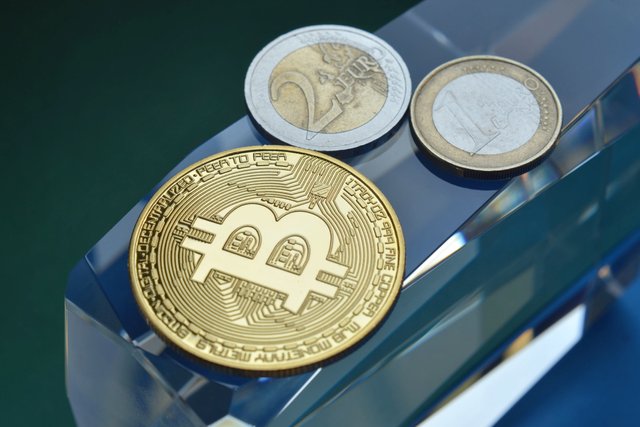What are crypto and how do they work

Gambar oleh Miloslav Hamřík dari Pixabay
Introduction
You've probably heard of cryptocurrencies, but what exactly are they? How do they work? Do cryptocurrencies have real-world applications or are they just fun to trade? Can you really make money through them? If so, how? Cryptocurrencies are digital currencies that exist solely on computer networks and do not rely on any central bank or government institution. Instead, they operate independently and use peer-to-peer networks to facilitate instant payments. There is no single point of failure, and if the network is compromised, the entire system can be rebuilt without any loss of funds.
Cryptocurrencies are decentralized digital currencies that operate independently of any central bank or government institution. Instead, they use peer-to-peer networks to facilitate instant payments between two parties without a single point of failure. The system is unregulated, which means there are no rules that prohibit a person from transacting anonymously.
Bitcoin is the most popular cryptocurrency today, but it is not the only one; there are nearly 1,500 other types of coins with different purposes. Bitcoins can be traded for traditional currency like dollars (such as through Coinbase), used to buy products online (like on Overstock), or mined as an investment that can later be exchanged for cash.
What are cryptocurrencies?
Cryptocurrencies are decentralized and do not rely on any central bank or government institution. Instead, they operate independently and use peer-to-peer networks to facilitate instant payments. There is no single point of failure, and if the network is compromised, the currency can be recreated using a new algorithm. This anonymity makes cryptocurrencies increasingly popular for people who want to avoid traditional banking and financial institutions. Transaction fees are lower than those charged by traditional banks, and digital wallets allow you to securely hold multiple types of cryptocurrencies in one place with identity management that allows you to access your funds at any time without a password.
How do cryptocurrencies work?
Cryptocurrencies are decentralized, meaning they do not rely on any central bank or government institution. Instead, they operate independently and use peer-to-peer networks to facilitate instant payments. There is no single point of failure, and if the network is compromised, the currency can simply switch to another blockchain. In addition, cryptocurrencies provide anonymity; although it may be possible to trace the transaction back to the original sender's wallet, it is not possible to determine who sent or received the money. This has made them increasingly popular as traditional banking institutions have increased their fees and slowed down transactions. Digital currencies have also become more stable than traditional financial institutions due to their inherent low volatility.
Advantages and disadvantages of cryptocurrencies
Cryptocurrencies are becoming increasingly popular as financial institutions continue to struggle with market volatility, rising transaction fees and a lack of anonymity. But the cryptocurrency market still has its drawbacks: digital currencies are not yet widely accepted by traditional banking or financial institutions, which means that transferring cryptocurrencies from one person to another can sometimes be difficult. Despite these drawbacks, cryptocurrencies are becoming increasingly popular due to their ability to facilitate instant payments without any intervention from a central bank or government institution.
Conclusion
Cryptocurrencies offer a measure of anonymity to users, but they also have their own challenges. The market volatility of these currencies can lead to significant losses for investors. Transaction fees are low for cryptocurrencies, although digital wallets must be secure from hackers to prevent identity theft. Financial institutions are wary of cryptocurrencies because they don't use traditional banking methods, but the popularity of cryptocurrencies is growing around the world in part due to financial instability in many countries.
Thank you, friend!


I'm @steem.history, who is steem witness.
Thank you for witnessvoting for me.
please click it!
(Go to https://steemit.com/~witnesses and type fbslo at the bottom of the page)
The weight is reduced because of the lack of Voting Power. If you vote for me as a witness, you can get my little vote.
You are right but do you think there is a proper decentralised network present in this world? I have spend alot of time trying to believe this decentralization thing but once a mathematician told me that decentralised networks are probably a myth.
In my personal opinion bitcoin is one of the most decentralised network. Anyways thanks for sharing the basics.
Before i leave can you answer a small question of mine. As you mentioned in your blog :
Don't you think that we can transfer crypto via DEX very easily ? Also how can we do something to make crypto accepted worldwide.
Will you buy a 1 kg apples for few steem someday and will a fruit seller be ready to sell his fruits for any crypto someday ? If yes that's what will make crypto break the barriers of these banking system trying to hold back crypto.
Thank you , it was nice reading your blog.
In my opinion, I think Bitcoin is the only decentralized cryptocurrency because it does have any one dictate whether there will be upgrade or not like Ethereum.